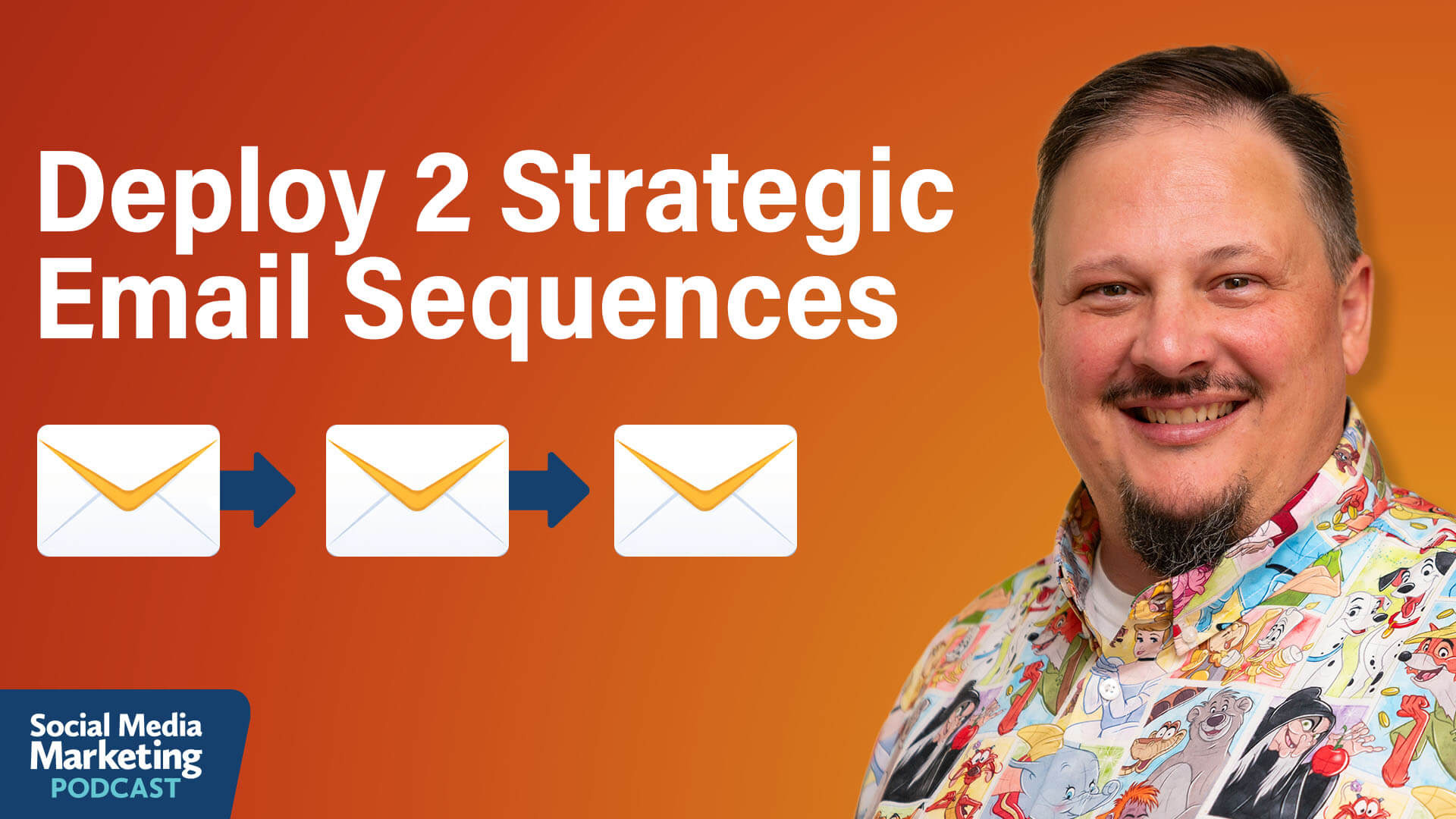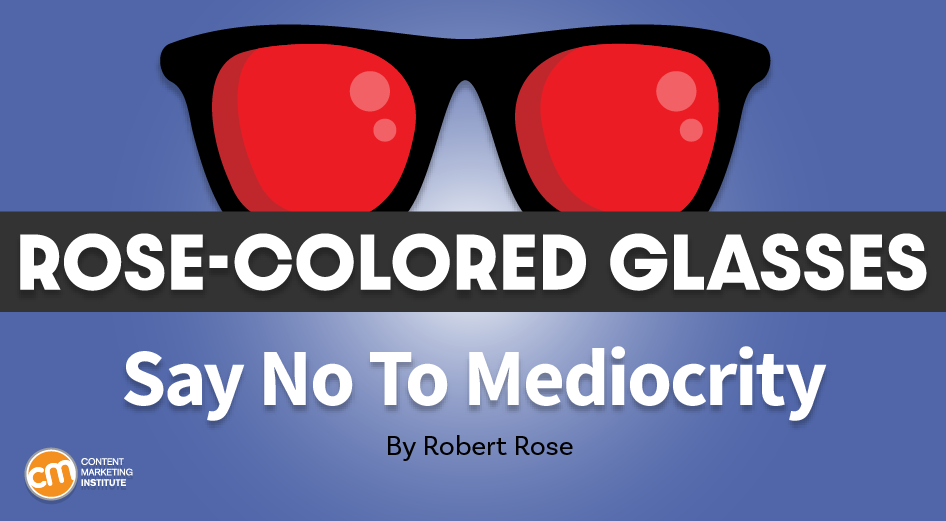We should rename generative AI. I suggest calling it “expressional AI.”
The dictionary defines “generative” as “having the ability to produce, originate, or reproduce something.” That’s an inaccurate description of generative AI because it suggests that it originates an idea.
“Expressional” is defined as “relating to or of expression, especially in language, the face, or the arts. Expressional can also mean embodying a conception or emotion.” This definition more accurately describes what AI does. It expresses an idea based on a prompt given by someone.
That distinction is crucial now as generative AI shifts expectations of people’s value.
Don’t get buried by mediocrity
The trope of generative AI becoming some Skynet evil overlord is stale. Generative AI is more likely to bury everyone in monetized content mediocrity.
Last year, Amazon instituted a three-per-day upload limit for self-publishing after an influx of AI-generated books. Think about that. Three books a day? It doesn’t seem Amazon takes the problem seriously. What author needs a daily limit on how many books can be published on the platform?
Some experts warn AI will generate 90% of all content on the internet within a couple of years. I don’t know if that number is valid, but even 10% is concerning.
And for those in marketing and content, you couldn’t pick a worse time for technology to enable everyone to express every idea they have.
You’re already dealing with too much commoditized content crowding your audiences and filling attention spans. You’re already facing more pressure from the leaders of your organizations to produce more content that gets more attention from persuaded buyers or engaged customers.
You’re exhausted.
And now, generative AI stands ready to help people express even more words and pictures.
Leading teams, guiding clients, and working with colleagues all feel different in a world where people think AI powers everything. It’s not all doom and gloom, but it’s not all unicorns and rainbows, either. So, it’s hard to get excited about AI when it feels like homework.
Let’s be clear. Right now, AI in content and marketing is the sexiest thing that most companies are not doing. Really.
Most businesses remain in experimental mode or have formed a skunkworks team to firm up use cases and figure out what “good enough” means.
But new products still emerge. And it seems like generative AI is integrated into every content creation tool.
Sometimes, it feels wrong to use it, but it also feels like you’re falling behind if you don’t.
The quality of ideas still matters
I’ve noticed a weird trend with AI. It’s as if everybody has lowered their expectations to match the capability of the latest tool.
I recently chatted over a beer with a talented and successful screenwriter friend. He told me his writers room uses AI tools to generate new ideas for shows or episodes.
“The ideas it generates aren’t great, but it gives us a great starting point,” he said.
I’ve heard that sentiment from marketing folks as well.
I told him, “It gets you faster to all the bad ideas you would have all had in a brainstorming meeting.”
He laughed and said, “Yeah, that’s kind of it.”
Is that valuable? Maybe. In a world where time is money, getting to the bad ideas more quickly could be valuable. But a comprehensive bad-idea board doesn’t sound like a particularly compelling result.
More troubling is that some marketing and content teams don’t distinguish the bad from the good. They equate generative AI’s speed with creativity — and they see one (or more) of those ideas as being “different” (because they hadn’t iterated it yet). They act on it immediately. Put simply, they value the time to the idea more than the idea itself.
You need to do the opposite.
You get what you expect
Consider the struggle a client shared with me recently regarding a writer on his team who continually produces work that “just isn’t good enough” in the client’s view. He told me, “I’m not sure what to do.”
I asked if he’d considered raising expectations. My client seemed incredulous. “No,” he said. “I’m just trying to get him to first base. If I can get a basic piece out of him, I’ll count it as a win.”
And then came the punchline.
“So, I’ve got him using ChatGPT. I’ve been trying to manage his expectations about where he fits in.”
The term “manage expectations” has been used for decades. Over the last 25 years, every firm I’ve worked with says it focuses on managing others’ expectations about delivering great work.
I’ve rarely seen that phrase mean raising expectations about what to deliver. It usually means lowering expectations (theirs or yours).
In other words, if you think you or a team member will surpass expectations, you stay silent. Then, when it’s done, you can surprise and delight others. Or if you expect to underwhelm, you don’t say you expect great things because you’ll disappoint others if you don’t deliver.
Search Google for best practices around managing expectations, and you’ll find some variation of this advice: “Communicate your intentions clearly.”
That’s all well and good. But before you manage expectations for your team, boss, client, or customer, ask: “Am I communicating my expectations, or am I trying to lower theirs?”
My client lowered expectations for his writer by suggesting generative AI would help him produce better articles.
Greater expectations
Think about when you’re excited about an innovative idea for you or the team to accomplish. Your expectations are off-the-chart high.
But what do you do when you take the idea to management? You dampen that excitement. You manage their expectations, so you’ll be sure to meet them. Have you ever said (even to yourself), “Let’s underpromise and overdeliver?”
Exceeding expectations is a flawed way to deliver a service. It’s likely to prompt a response like the one Nigel Tufnel received in Spinal Tap when he points out that his amplifier goes to 11: “Why don’t you just make 10 louder?”
If you need to exceed expectations, someone’s expectations aren’t high enough.
Aim for the home run
A psychological phenomenon is at work. The Pygmalion effect involves setting high expectations for people to propel them to better results.
Despite the challenges you face (and maybe because of them), you must adjust expectations for your and your team’s performance. With your team, you can:
- Reprioritize projects and deadlines (delegate or extend due dates as needed).
- Assess the quality of your work, especially the details needed for these projects.
- Balance the work across the team to account for personal stress levels.
But the one thing you shouldn’t do? Lower your expectations.
Expressional AI is probably OK
That brings me back to why I want to rename generative AI as expressional AI.
Now and for the foreseeable future, generative AI is not generating ideas. It’s not expressing the best content based on your idea. It is expressing the most probable content based on your idea.
Generative (or rather expressional) AI is OK. Occasionally, it may be good. But don’t lower your expectations by rationalizing, “This is what state-of-the-art technology gives us now.”
It may help you express the most probable ideas faster. But it won’t generate or express the best ideas for you.
Is that client struggling with an underperforming writer? I advised him not to look at AI as the answer and challenged him to set the highest expectations.
I said, “Instead of telling this writer you’re trying to get him to first base, why not tell him you expect a home run — and you need him to come up with the best ideas?
“Maybe he only gets a base hit, but at least you both know that was his best.”
Align expectations with reality so everybody aims for 10. You don’t have to hit 11. But you should achieve the highest level you can.
Next time you find yourself managing expectations, check whether you’re communicating your expectations or lowering theirs.
When you raise expectations to match your own, I expect you’ll get more of what you want.
HANDPICKED RELATED CONTENT:
Cover image by Joseph Kalinowski/Content Marketing Institute










